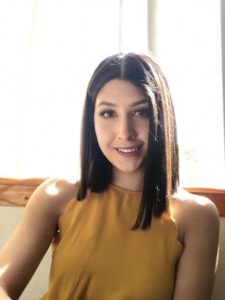Studying Psychogenic Non-Epileptic Seizures (PNES)
This blog was originally written as a guest post for the PNES blog run by Lorna Myers, Ph.D. and sponsored by the Northeast Regional Epilepsy Group.
Why Study PNES
I was first introduced to psychogenic non-epileptic seizures (PNES) when I joined the emotion research lab at Arizona State University (ASU) as a Master’s student in August of 2019. My advisor Dr. Nicole Roberts studies PNES. At that time, I had no idea that such a condition existed. This motivated me to seek to understand more. As I read, I was deeply moved by testimonials of individuals with PNES. And I read about the challenges they, their medical team, and loved ones faced.
I was drawn to psychology to understand relationships between the brain, the body’s responses, and life experiences. In particular, I want to understand intensely stressful experiences. While I can never fully understand the experiences shared by those experiencing PNES. Nevertheless, I want to increase support for and knowledge about PNES.
Individuals with PNES face stigma and skepticism about whether their seizures are genuine. This is in part because there is not a firm understanding of the biological process or biological treatments. However, emotions and internal nervous system signals can have specific effects on the brain and body. It is very important to understand how PNES symtoms impact the health and emotions of individuals. When we understand, we can help bridge the gap and destigmatize this condition.
How You Can Help
In our current online survey as well as our previous in-person studies, we have collected responses from people with PNES about their past events; emotional reactions; body’s responses; attitudes and behaviors about themselves and in relationships. This is helping us get a more complete picture of how the emotion system responds in individuals who have PNES.
The research I do with Dr. Roberts in the lab also seeks to know more about the experiences of individuals with PNES and those close to them. Understanding the perspective of those closest to someone with PNES may help us learn more about PNES. This research builds on other studies we have conducted on many kinds of couples. That includes healthy couples from different ages and cultural backgrounds and couples under stress.
We Need Your Input
Thank you for sharing your stories and continuing to use your voices. Your experiences inform research and share knowledge about PNES. Right now, we are collecting data for an ongoing survey of PNES. The survey is online with paper copies available on request. Completing the survey takes about 1-2 hours to fill out but does not need to be completed in one sitting. When you do the survey, you will find questions asking about you, your experiences with PNES, your stress and coping, and your relationships with healthcare providers and with others in your life.
Do You or Someone You Know Experience PNES?
If you or someone you know is at least 18 years old and experiences non-epileptic seizures, please consider participating in our survey or passing along our information. The first 50 participants with PNES will be able to receive a $35 amazon.com giftcard; participants after the first 50 will be able to be entered into a drawing for one of four $35 amazon giftcards.
For those married or in a relationship for six months or longer, we also are collecting survey responses from spouses/partners of those with PNES. The first 50 partners will be able to receive a separate $25 Amazon gift card. Partners after the first 50 will be able to be entered into a drawing for one of four $25 gift cards. Participants also can indicate that they would like to receive a copy of the findings when available. For reports and any publications, all data will be kept anonymous and will only be presented in group form. No specific individuals are identified. Data are ONLY for research purposes and are ONLY accessible to directly-involved and approved members of the research team.
Talking with people who experience PNES is the best way for us to learn about this condition. This also helps us learn how to help. You can join us by directing our survey and contact information to someone you know who has PNES. You can also contact us directly using any of the methods below.
How to Contact Us or Participate
To take the survey, simply visit this link.
The link to the partner version of the survey if applicable is here. We ask that partners only participate if their spouse/partner with PNES is participating. Please complete surveys independently. If you have questions or for more information, please reach out to asuseizurestudy@gmail.com or call our 24-hour confidential voicemail at +1 (602) 543-4524.
Finally, learn more about the work of our lab by reviewing research articles published by Dr. Roberts and collaborators with the ASU Emotion Lab.

Dayana Villarreal is a second-year Graduate Student at Arizona State University and a member of the Emotion, Culture, and Psychophysiology Laboratory